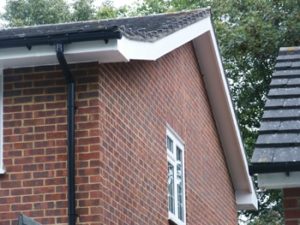This company has no active jobs
0 Review
Rate This Company ( No reviews yet )
About Us
9 Lessons Your Parents Taught You About Fascia Installation
Fascia Installation: A Comprehensive Guide
Fascia installation plays a vital role in both the looks and functionality of a structure. It refers to the board that runs horizontally along the edges of a roofline, providing a neat surface and assisting in the accessory of rain gutters. The selection of products, styles, and proper installation techniques can significantly impact the longevity and look of a structure. This short article offers an extensive take a look at fascia installation, detailing the products normally used, a step-by-step installation process, potential challenges, and often asked concerns.
Tabulation
- Comprehending Fascia
- Meaning
- Kinds Of Fascia Materials
- Tools and Materials Needed for Installation
- Step-by-Step Guide to Installing Fascia
- Common Challenges and How to Overcome Them
- FAQs About Fascia Installation
- Conclusion
1. Comprehending Fascia
Definition
Fascia is the horizontal board that covers the ends of roofing rafters. It provides a finished appearance while also serving a number of functional functions, consisting of supporting the roofing and securing gutters.
Types of Fascia Materials
A number of products can be utilized for fascia installation, each with its own advantages:
| Material | Advantages | Drawbacks |
|---|---|---|
| Wood | Natural looks, paintable, easy to deal with | Vulnerable to rot and pests, needs maintenance |
| Vinyl | Low maintenance, resistant to fading and decaying | Can be less resilient than wood, restricted style options |
| Aluminum | Resilient, resistant to rust, low maintenance | Can dent easily, restricted color options |
| Composite | Resistant to rot and insect damage | Higher preliminary expense, can look less authentic |
| PVC | Really durable, simple to install | More pricey than wood or vinyl, not widely readily available |
2. Tools and Materials Needed for Installation
Before starting fascia installation, it is important to collect the needed tools and materials to make sure the job goes efficiently. Here’s a list of items you will require:

Tools:

- Tape step
- Miter saw
- Hammer or nail weapon
- Level
- Caulking gun
- Ladder
- Safety goggles
- Drill
Materials:
- Fascia board (material of choice)
- Nails or screws
- Caulk or sealant
- Gutter system (if relevant)
3. Step-by-Step Guide to Installing Fascia
The installation of fascia can be done as a DIY task. Here’s a step-by-step guide on how to successfully set up fascia:
Step 1: Preparation
- Check the Roof: Before beginning, ensure the roofing system structure is sound. Search for any signs of damage or rot that might require attention.
- Step the Length: Using a measuring tape, determine the overall length needed for the fascia boards.
Action 2: Cut the Fascia Boards
- Cut the Boards: Use a miter saw to make cuts at the suitable lengths. Make angled cuts at corners for a cool finish.
Step 3: Position the Fascia Boards
- Hold the Board in Place: Position the fascia board against the roofing system edge and use a level to ensure it is directly.
Step 4: Fasten the Boards
- Nailing: Secure the fascia board into place utilizing nails or screws. This includes nailing through the board into the rafter ends. Ensure that the fasteners are spaced roughly 24 inches apart.
Step 5: Seal the Joints
- Apply Caulk: Around the joints, apply caulk or sealant to avoid water seepage, making sure the durability of the installed fascia.
Step 6: Install Gutters (if applicable)
- Attach Gutters: If you’re likewise installing gutters, connect them directly underneath the fascia to guarantee appropriate drainage.
Action 7: Final Inspection
- Inspect Alignment: After installation, do a final check to ensure everything is lined up properly and firmly fastened.
4. Typical Challenges and How to Overcome Them
Installation might not always go as planned, and it’s vital to be gotten ready for typical obstacles:
- Misalignment: If the fascia boards appear unequal, confirm the level and compare all measurements before fastening.
- Inaccurate Cutting: Always verify measurements before cutting. If cuts are too short, it will need purchasing new materials.
- Weather condition Conditions: Plan your installation day carefully to prevent rain or high winds, which can compromise quality and safety.
5. Frequently Asked Questions About Fascia Installation
Q1: How do I understand which product to choose for fascia?A1: Choosing the ideal product depends upon your spending plan, environment, and wanted aesthetic. Wood offers a natural appearance, while vinyl and aluminum offer low maintenance. Q2: Can I set up fascia by myself, or do I require professional help?A2: Installing fascia can be carried out as a DIY job if you are comfortable operating at heights and utilizing tools. However, working with a professional is advisable for complex architectures. Q3: How typically should fascia be replaced?A3: The life expectancy of fascia boards can differ. Wooden fascia might require replacement
every 10-20 years, while vinyl and aluminum can
last for years if preserved correctly. Q4: Do I need licenses to set up fascia?A4: Check with your local structure department. Lots of locations do not need authorizations for fascia installation, but it’s important to verify. Q5: What
maintenance is required for fascia?A5: Regular inspections for rot or degeneration, especially in wood, and cleaning or repainting as needed. 6.
Conclusion Fascia installation might seem difficult,
but with cautious preparation and understanding of products and strategies, it can be a gratifying DIY project or an uncomplicated task for professionals. Correct installation not only improves the visual appeal of your home however also ensures structural stability, especially concerning water management through seamless gutters. When handling your fascia installation task, keep in mind to stick to safety procedures and, when in doubt, talk to or work with a professional to guarantee the very best possible result.

